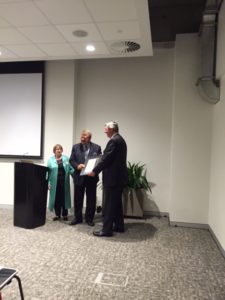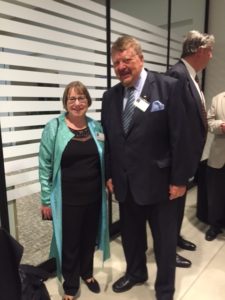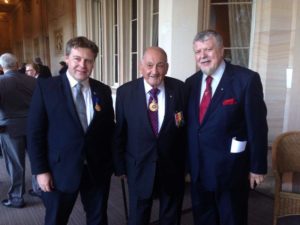I am delighted to be awarded UNE Distinguished Alumni Award for “advocacy of multiculturalism and human rights’ .
It brings back many memories about my humble beginnings in Australia, first as a night shift process worker in Ralph Symonds and then as a PhD student at the New England University. It was a time of forming new friendships, learning English and Australia. UNE gave me a great foundation for my professional future.
I appreciate this distinction very much.
The below photographs are from the Award Ceremony held in Sydney on 20 September 2017 with Professor Annabelle Duncan, Vice-Chancellor and CEO, New England University and with Mr James Harris, Chancellor, New England University.


